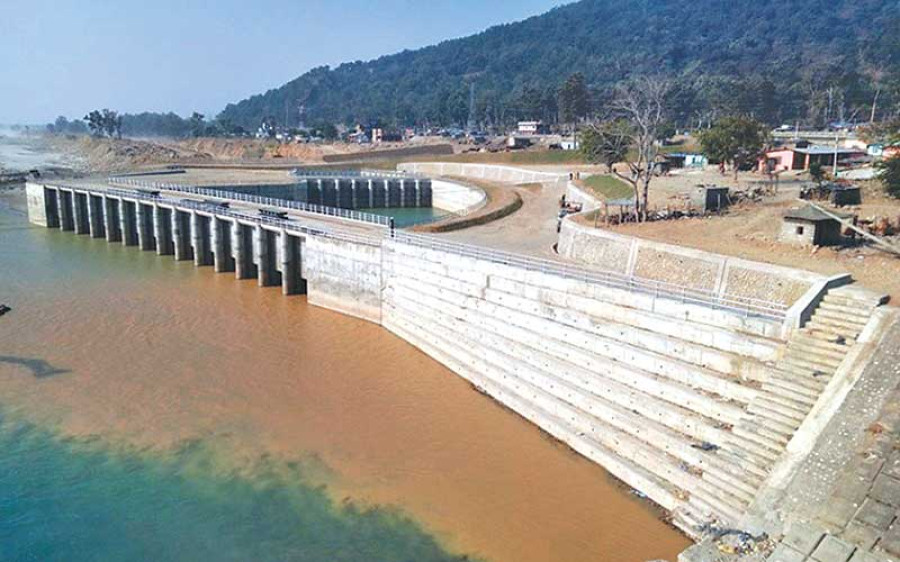Money
Rs 12b Kailali irrigation project 70pc complete
Nearly 70 percent of the construction work at the Rani Jamara Kulariya Irrigation Project in Kailali in the far west has been completed.
Ganesh Chaudhari
Nearly 70 percent of the construction work at the Rani Jamara Kulariya Irrigation Project in Kailali in the far west has been completed.
The national pride project is designed to provide year-round irrigation facility to more than 20,000 hectares of land in the first phase and another 18,300 hectares in the second phase.
It is one of the prominent farmer managed irrigation schemes in the country and is being modernised and rehabilitated with traditional farmers’ systems.
Sushil Chandra Acharya, chief of the project, said that the first phase of the project would be completed on the stipulated time, or by this fiscal year, if there were no obstacles.
Rani Kulo was built in 1896, Jamara in 1950 and Kulariya in 1972. This system is a cluster of three independent branch canal systems, each having a separate water intake at the Karnali River.
The irrigation project plans to build the main intake below the bridge over the Karnali River and a 9-km main canal extending from it. Acharya said that the project had completed the intake works. Only 1,100 metres of the 9-km main canal remains to be built, he said.
The project will also rebuild farmer-managed canals, install mechanisms to protect the irrigated areas and improve the village agriculture road. The project has so far completed a 108-km gravel road out of the planned 115 km.
“We are on track to complete the project within the stipulated deadline,” he said. The first phase of the project is expected to cost Rs12.63 billion. According to the current plan, the project will be operational in two phases.
In the first phase, irrigation facilities will be improved. In the second phase, rural municipalities north of the East-West Highway in Kailali district will have access to irrigation facilities after a new canal is built through Balchaur.
The project will irrigate 5,300, 4,100 and 4,900 hectares of land through Rani, Kulariya and Jamara canals respectively. In addition, 6,000 hectares of land will be irrigated along the East-West Highway in the first phase.
In the second phase, the command area will extend from the Karnali River in the east to the Kangada River in the west, and from the forest boundary in the north to the Nepal-India border in the south.
The project will irrigate 18,000 hectares of land west of the Pathariya River.
It will have new auxiliary canals with a total length of 14 kilometres.
The project has been financed by the government and the World Bank.
It will improve the reliability of water supply and help farmers better manage risks associated with droughts, floods and fluctuations in the availability of water during agricultural seasons.
Since much of Nepal’s irrigation depends on the monsoon rains, farmers hope the project will provide irrigation facilities round the year.




 14.12°C Kathmandu
14.12°C Kathmandu














